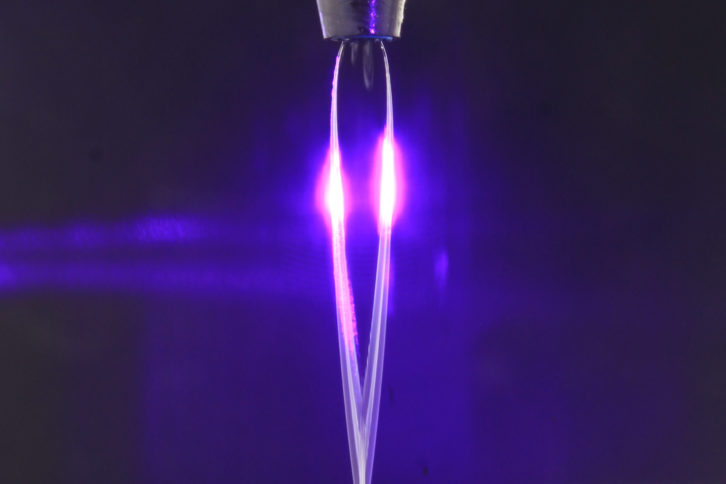
Researchers at Ruhr University Bochum, Germany, have created a water-based concept switch that posts speeds far beyond today’s semiconductors. All computers are made up at the base level of circuits that show an input of ‘on’ or ‘off’ (or 0 and 1, if you prefer), and these switches are controlled by semiconductors. The speed of these switches essentially dictates the speed of the computer. “They (semiconductors) are inherently limited in their speed,” states Dr. Claudius Hoberg, one of the researchers behind the project. Using this new water-based concept, the speed in which these switches are flipped can exceed the limitations of today’s semiconductors.
This new technique is comprised of water in which iodide ions have been dissolved, creating a salt water solution that becomes fanned and flattened out using a custom nozzle until it is only a few micrometers thick. “Think of it like squeezing a gardening hose to make the jet of water broad and flat, only on a much smaller scale,” explains Hoberg.
A laser pulse is then fired into the water, which, when exposed to the dissolved ions, makes the water suddenly conductive at incredibly short increments. A second laser reads the state of the water as either conductive or nonconductive (or on/off), turning the water into an ultra-fast switch. The speed of this switching would equate to terahertz speeds in a computer– speeds far beyond current semiconductors. Though this is still a small-scale concept, these dizzying speeds would create a whole new era of computing if they ever became standard.
Source: Ruhr University
See also: MIT battery breakthrough could pave the way to smaller, safer batteries










